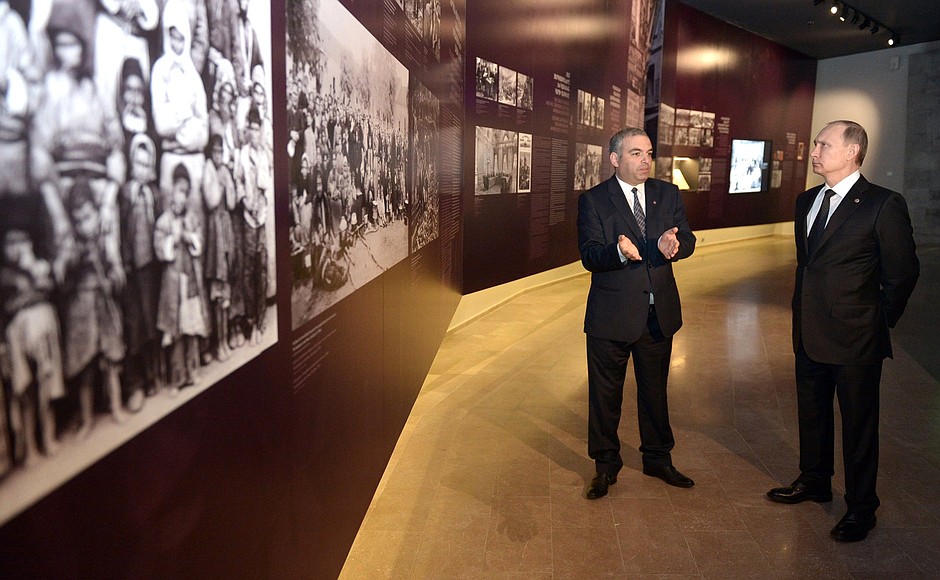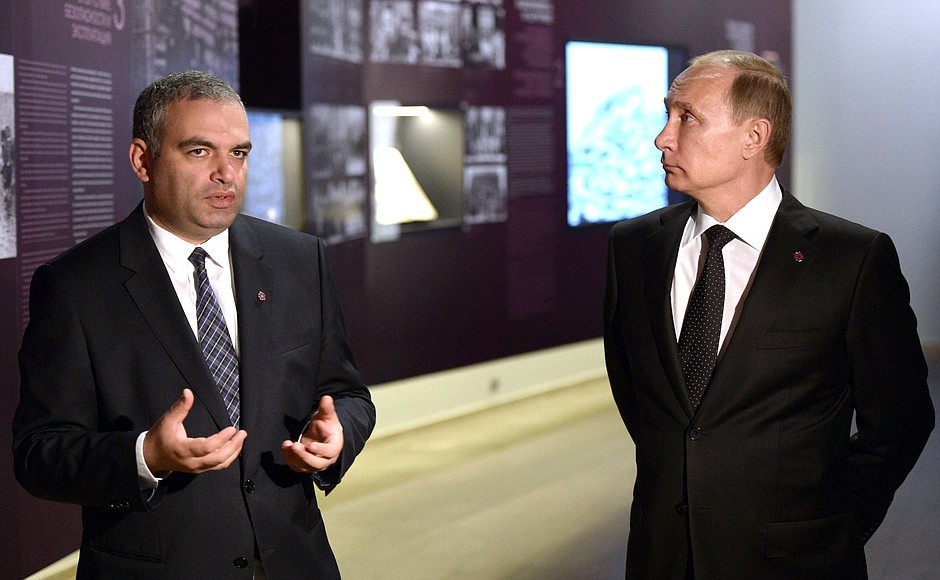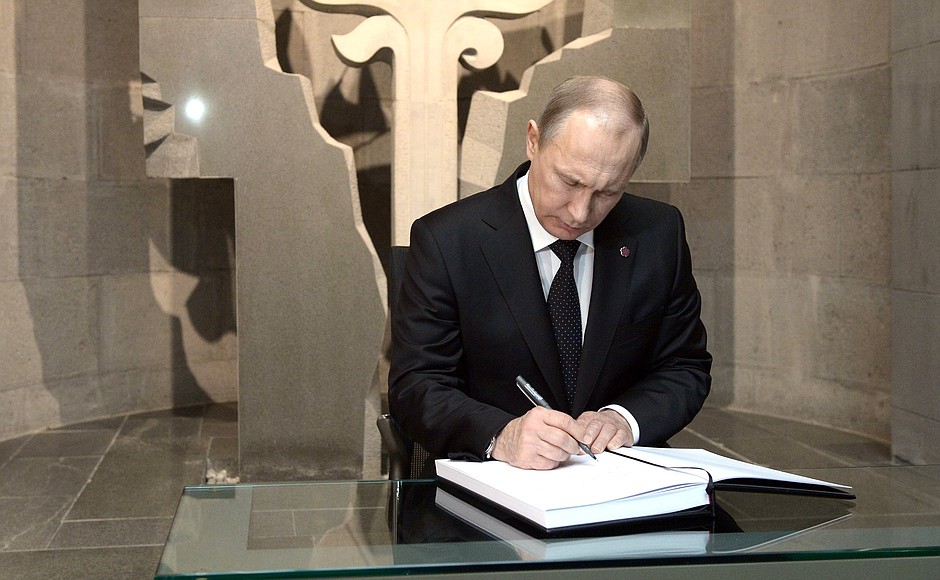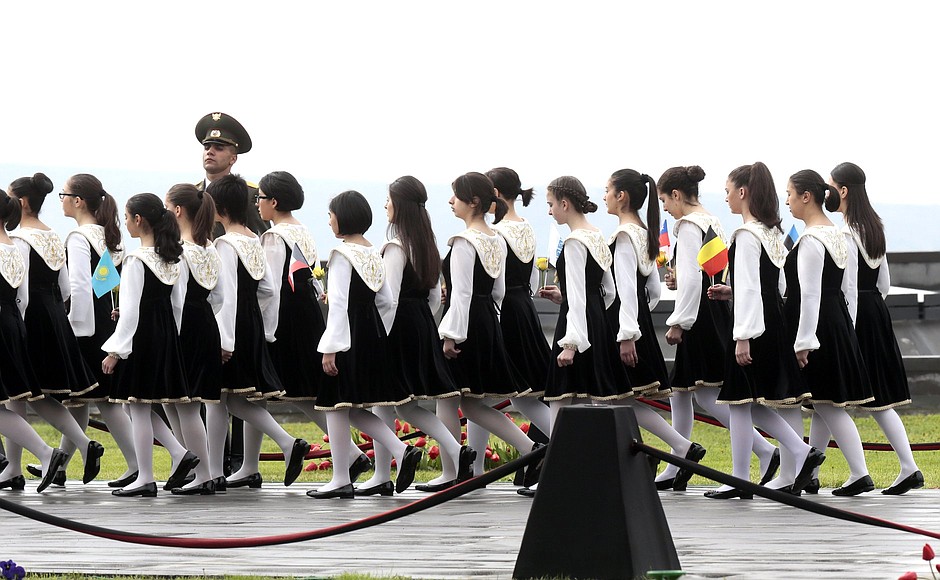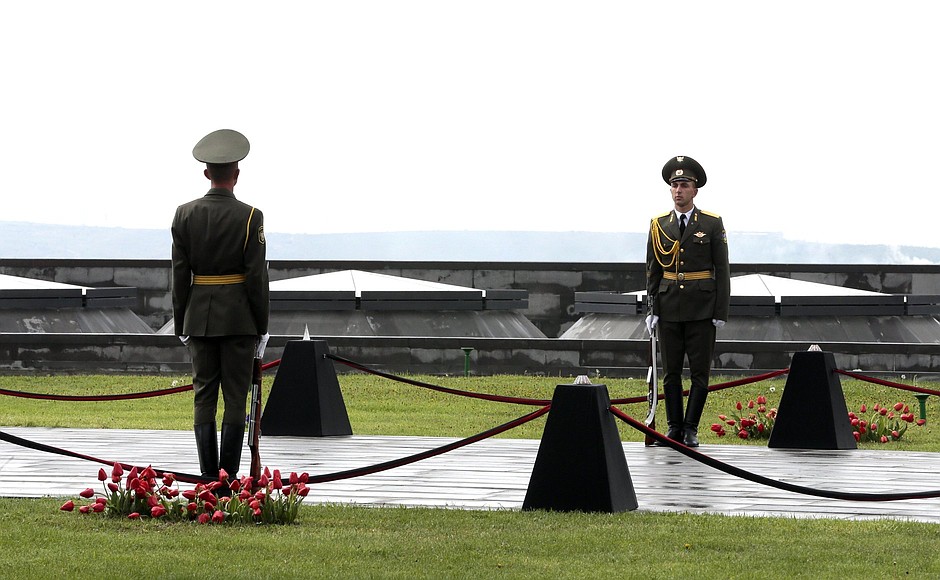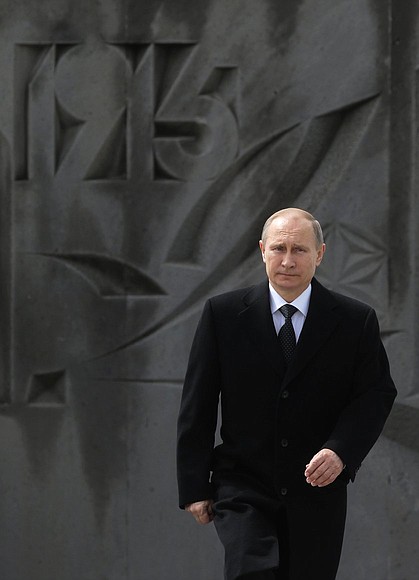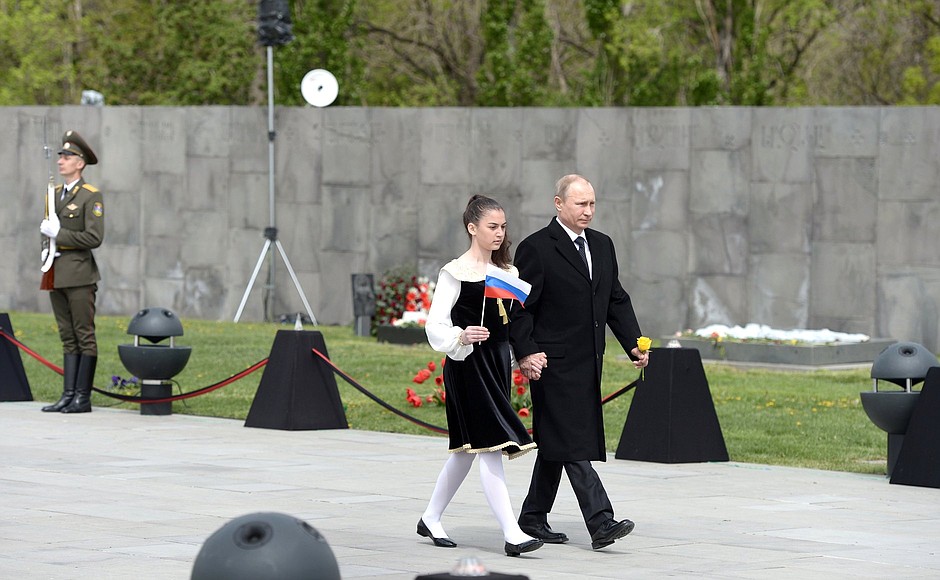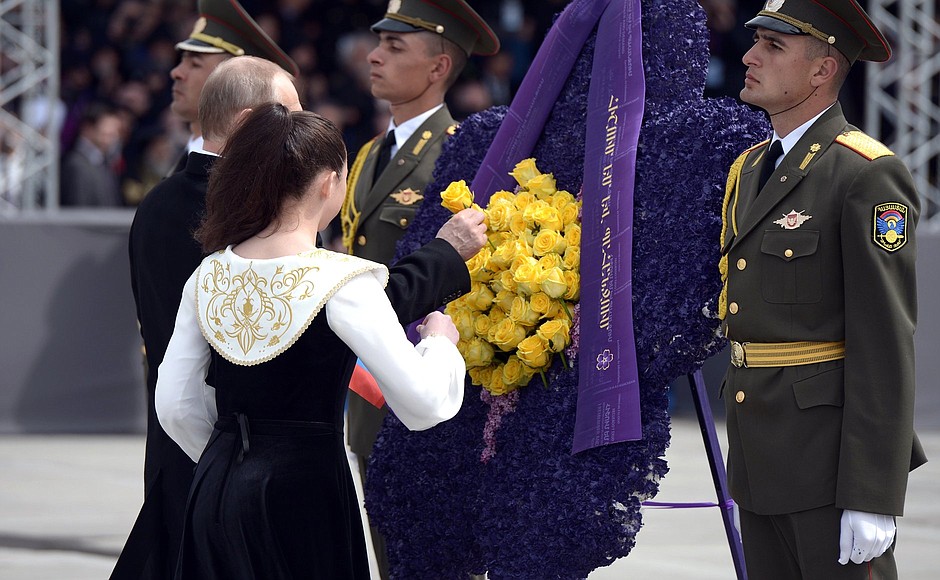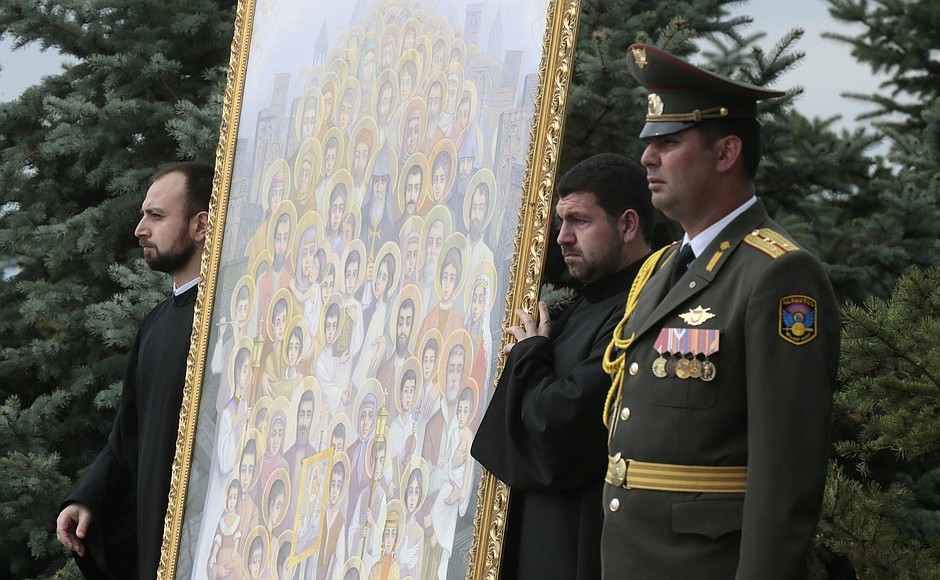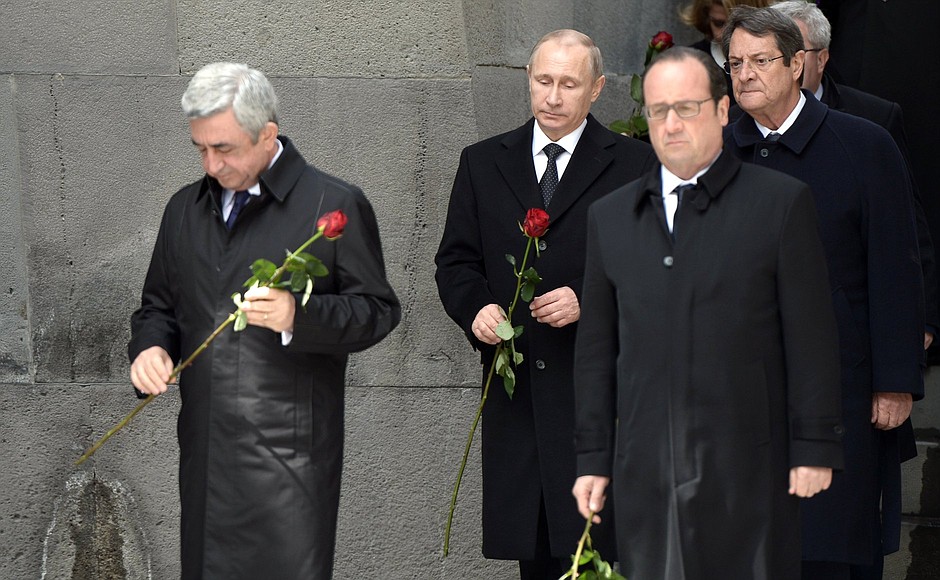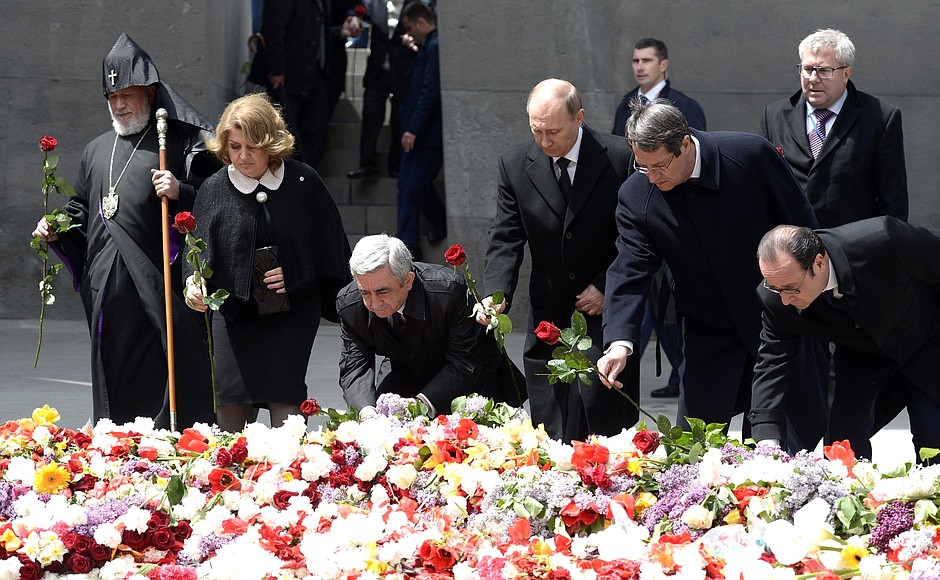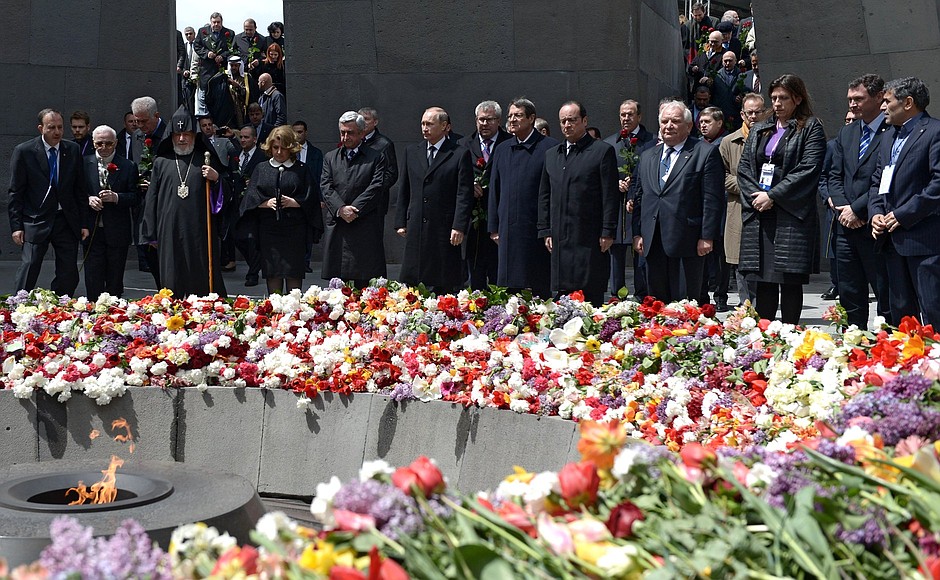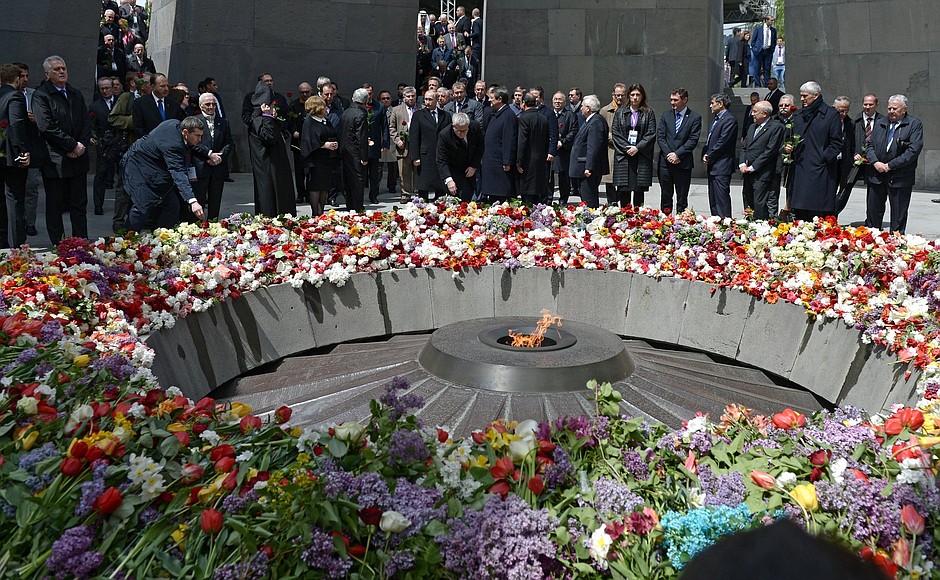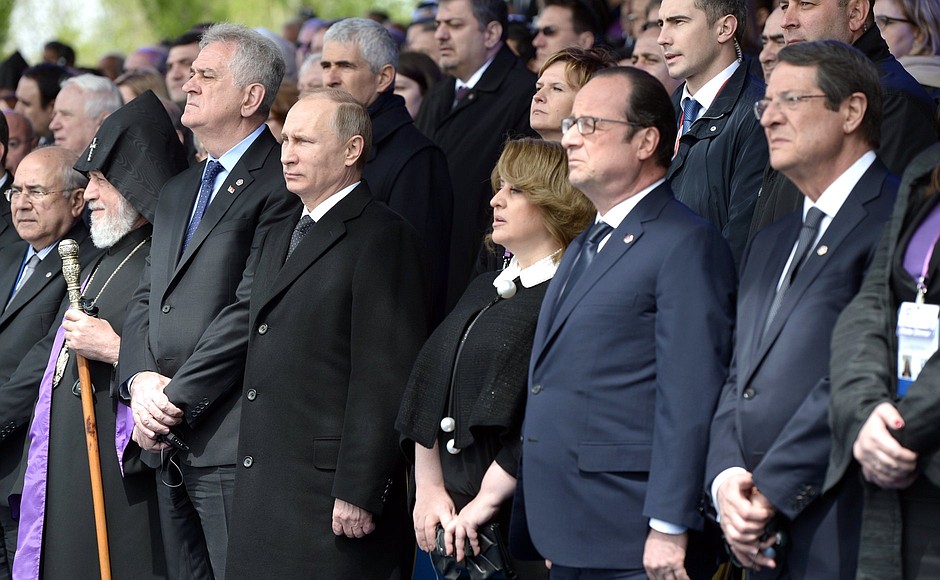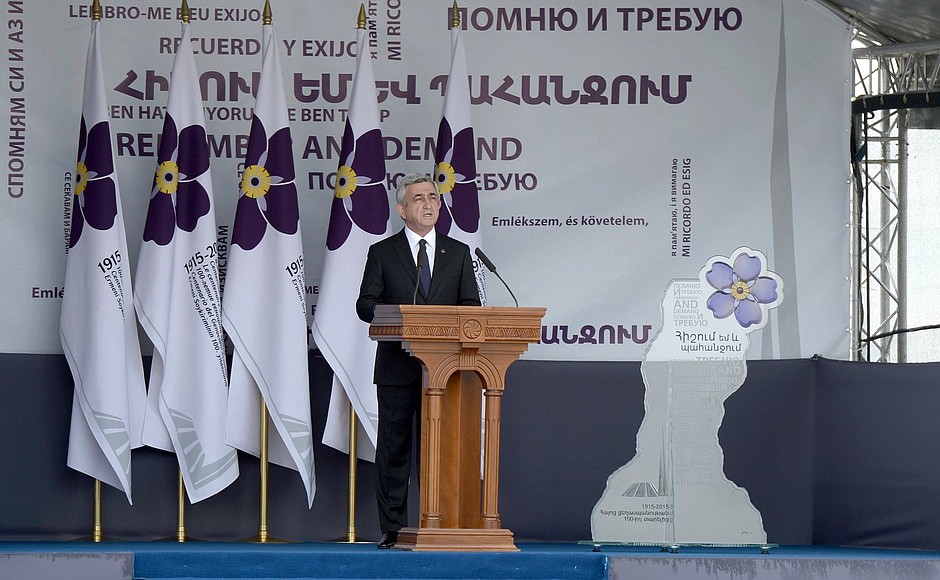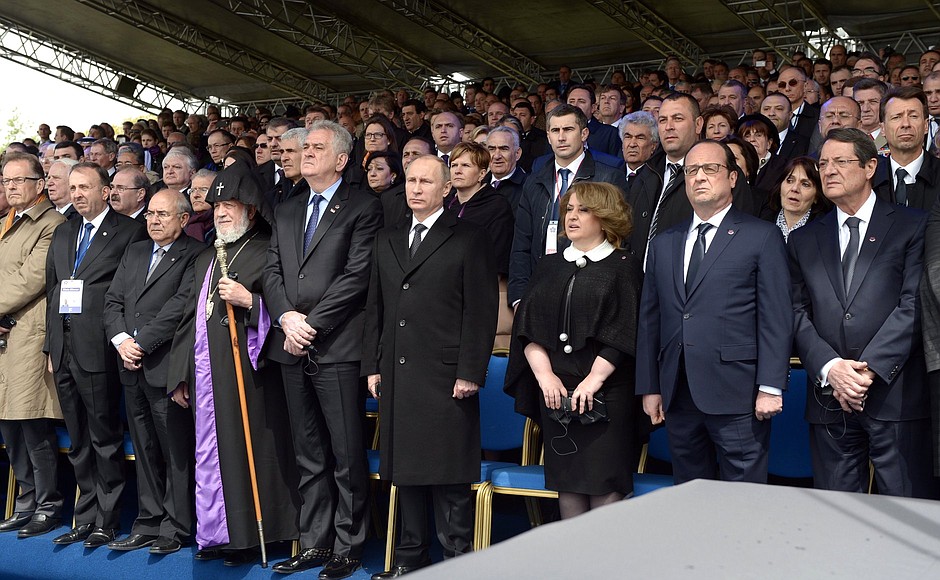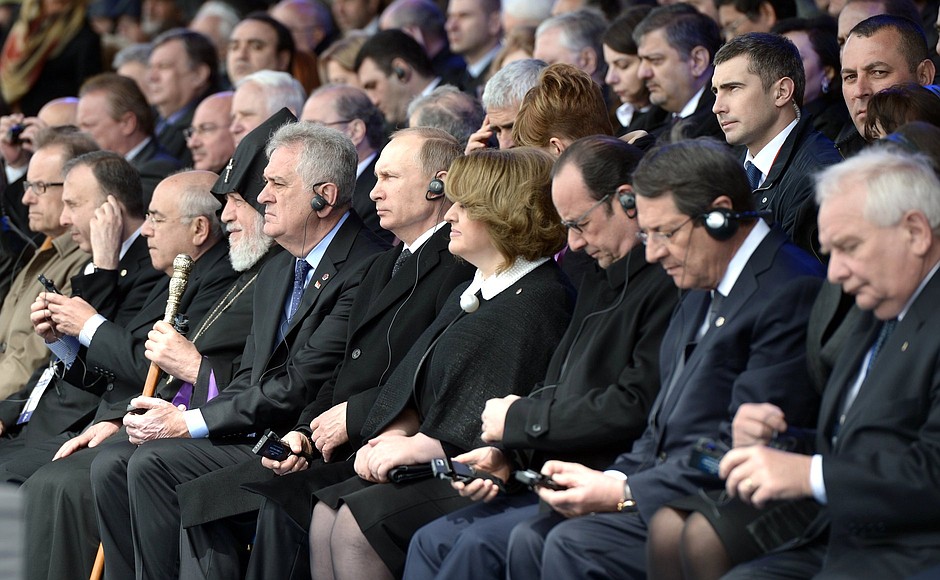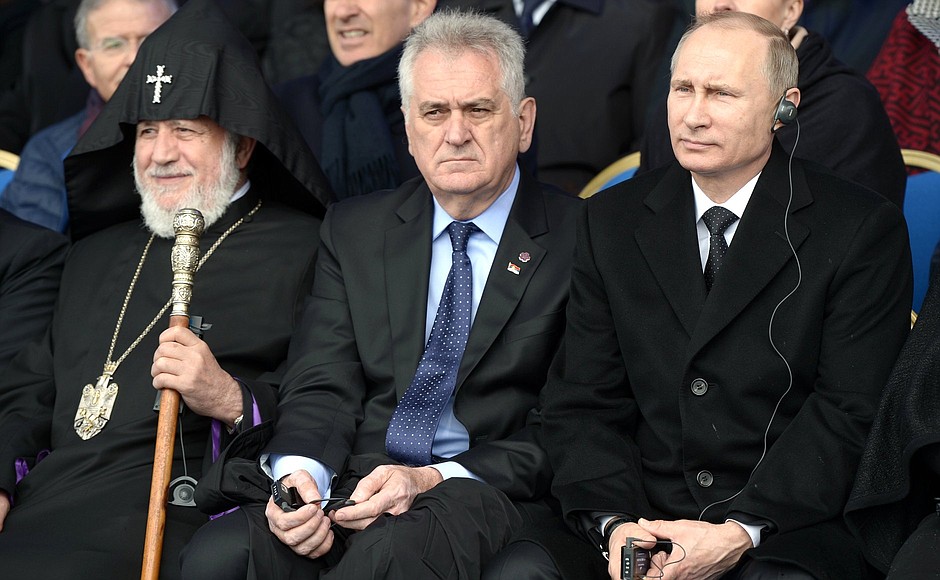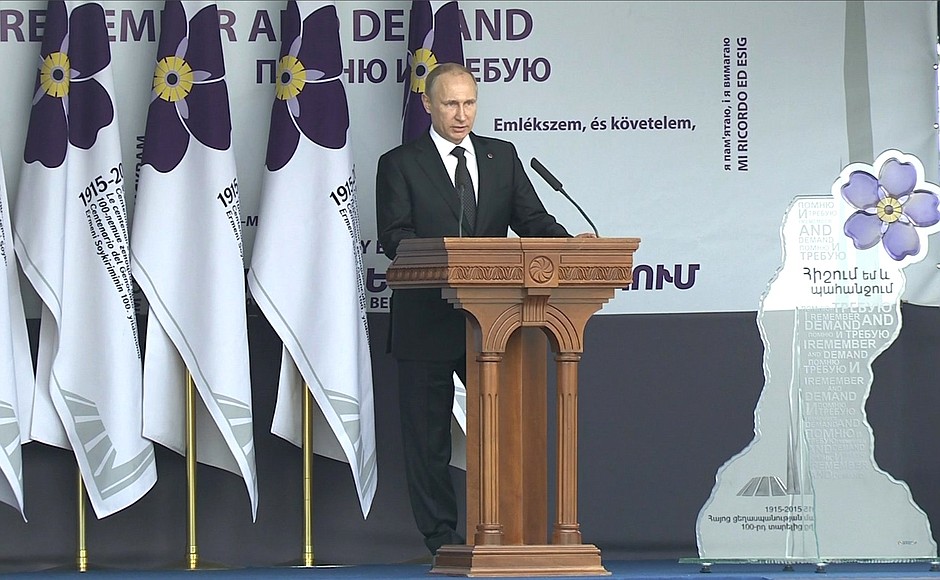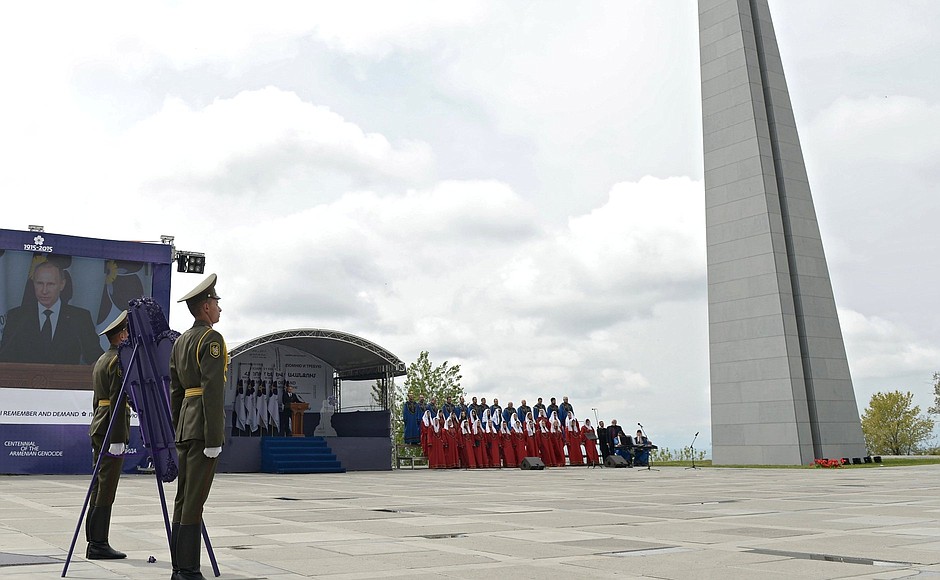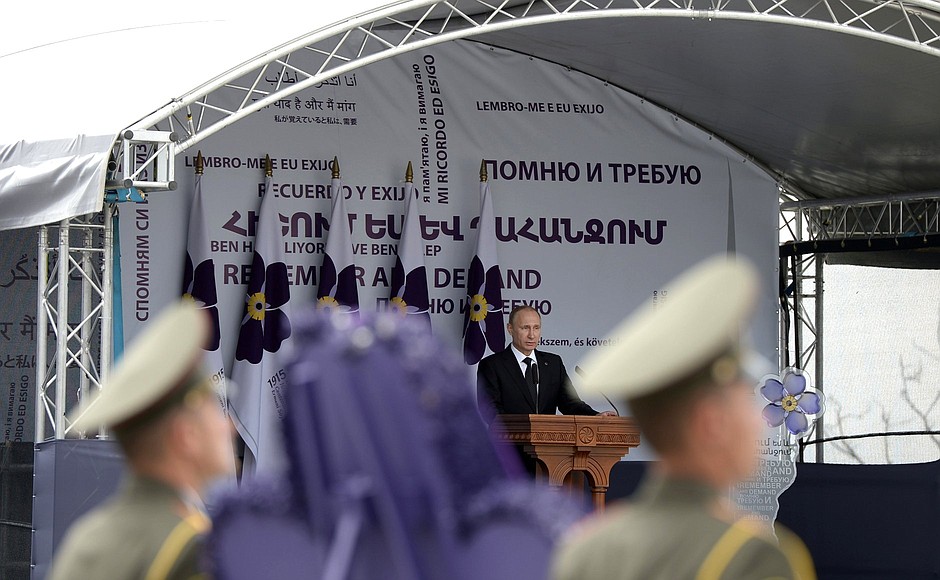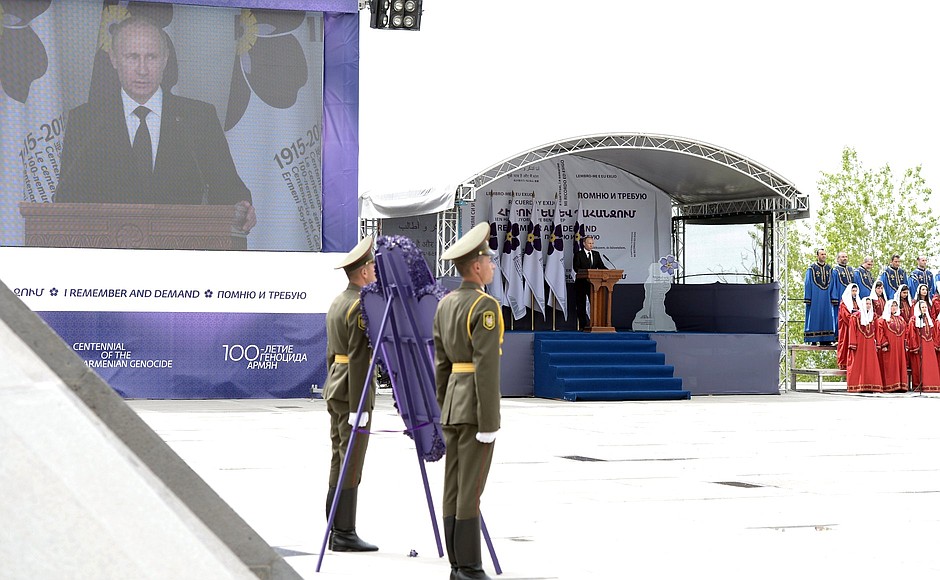Before the ceremony, Mr Putin laid flowers at the memorial and visited the Tsitsernakaberd Memorial Museum.
The Tsitsernakaberd memorial symbolises mourning for the 1.5 million Armenians who died during the tragic events of 1915 in the Ottoman Empire. The memorial complex was built in 1967 and comprises the Hall of Memory, The Reborn Armenia Memorial Column, and the Armenian Genocide Museum-Institute.
* * *
Speech at memorial ceremony for victims of the Armenian genocide
President of Russia Vladimir Putin: Friends, ladies and gentlemen,
I am grateful to President of Armenia Serzh Sargsyan for the invitation to take part in today’s memorial events.
We have sincere sympathy for the Armenian people, who went through one of the greatest tragedies in human history. More than 1.5 million peaceful people were killed and injured, and more than 600,000 were driven from their homes and suffered mass repression. Numerous priceless architectural monuments and sacred objects were destroyed and ancient books and invaluable manuscripts were burned.
The events of 1915 shook the entire world. Russia felt these events as its own grief. Hundreds of thousands, even millions of defenceless and homeless Armenians found shelter in the Russian Empire and were saved.
It was Russia’s diplomatic efforts that secured international condemnation of the violence inflicted on the Armenian people. At the initiative of Sergei Sazonov, Russia’s foreign minister, Russia, France and Britain, as the French President recalled just now, made a joint statement in which they directly called these events a crime against humanity and civilisation.
Relations between the fraternal peoples of Russia and Armenia have always been characterised by particular spiritual closeness and mutual support. This was the case during the dramatic events of a century ago, during the Great Patriotic War, and during the devastating Spitak earthquake.
Today too, we share the Armenian people’s sorrow.
Friends, I want to emphasise that hundreds of cities around Russia are holding more than 2,000 memorial events today. Not only members of the large Armenian community in Russia, which counts around three million people, are taking part, but so are tens of thousands of people of other ethnic backgrounds.
Russia remains resolute in what has always been its consistent view that there is and cannot be any justification for mass murder of any people.
Russia has signed and initiated a number of international legal acts that lay the foundations for modern international criminal law, including the Convention on the Prevention and Punishment of the Crime of Genocide.
The international community must do everything possible to ensure that these tragic events never happen again, so that all peoples can live in peace and harmony and not have to know the horrors that arise from religious enmity, aggressive nationalism, and xenophobia.
Sadly, we see that neo-fascism is once again rearing its head in many parts of the world, radical nationalists are seeking power, and anti-Semitism is on the rise. We also see signs of Russophobia. We need to ask ourselves why this is happening and what is the cause? In all of our actions in critically important parts of the world, we must think first of all about what will happen next, think about the consequences.
At the same time, as we remember the tragic events of past years, we should also look to the future with optimism, believe in the ideals of friendship, good-neighbourliness, and solidarity, learn goodness and harmony and learn to respect each other and respect each other’s interests. This is the only way to make the world a better, more stable and safer place.
Friends, we are with you. Thank you for your attention.
